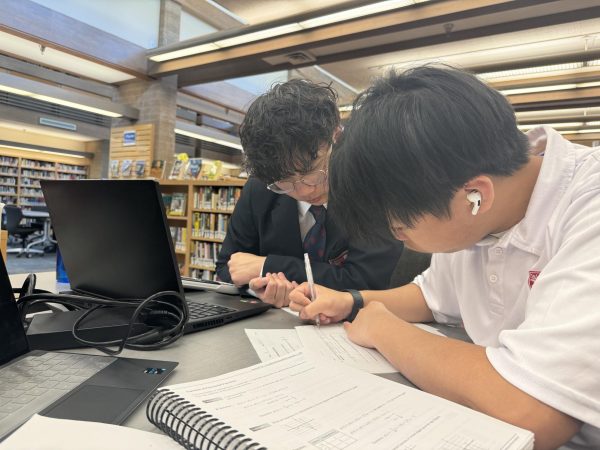Disconnect to Reconnect: Tech Detox Week
Whether it be for work, entertainment or merely expanding our knowledge, technology has become an essential aspect of our daily lives. However, this is not without negative consequences. Recently, a Common Sense Media poll found that 50% of teens in the US claimed that they “feel addicted” to their cellphones. Likewise, a Kazan University study found that social networking applications are what teens between 14 and 19 use technology for most and that these sites can often lead to time misuse or lack of self-control.
As a school that is heavily reliant on technology for school work and educational purposes, St. George’s school is very vulnerable to the temptations that come with technology use. For this reason, the school held its first ever “Tech Detox Week.” Between January 21st and 25th, technology use in public spaces of the school was highly discouraged.
To help the school understand the purpose of “Tech Detox Week”, the school invited Dr Shimi Kang, a Harvard trained doctor and media expert, to discuss how technology is useful and good if used correctly in reasonable amounts. However, Dr Kang also warned of the negative effects of technology if used irresponsibly and challenged all of us to a “Tech Diet Challenge” where participants swear an oath to reduce an aspect of their technology use.
The teachers also did their best to help students cope with the drastic change. Foosball and table tennis tables were brought into the Great Hall to give students an alternative to get them away from thinking about their phones. One of the teachers, Mr Kern, also challenged us to reflect on our time without technology to see if our energy levels had changed during this time.
Reflections to Tech Detox Week were mixed. For grade 12 student Jai Chagani, the week brought about reflection and awareness: “It [Detox Week] made me look at the screen time function on my phone and I realized that a lot of my screen time was spent on Facebook and messenger, which makes sense because I use both a lot for school. While I tried to set up restrictions on my phone usage, I ignored them anyway. Nevertheless, it had me considering how much time I spent on my phone, even if nothing else changed.”
However, an anonymous Grade 12 student did not share such sentiments: ” I feel that the week was not executed as well as I would like. I feel like a widespread tech detox doesn’t work because it mandates that hundreds of people immediately stop using highly addictive systems for some time. Some students don’t even want to change. If students want to change, the best way to do it is for students to challenge themselves instead of having the school dictating the act for a week”
Meanwhile, the teachers really enjoyed the week. When asked for his views of the event, Mr Chapman said that “after the week ended, I began deleting apps on my phone; I also tried to cut down time on my phone and started wondering what was the point of using my phone for everything. Overall, the week was a great idea and a useful concept that I hope people took seriously.”
Regardless of execution, hopefully, both students and teachers reflected on how technology can be used more responsibly and healthily. And hopefully, Tech Detox week would be the first step in monumental changes to the lives of our students.

Christopher is currently a Grade 12 student from Hong Kong who came to Canada as a boarder in Grade 9. In his spare time, Chris enjoys reading, taking...












